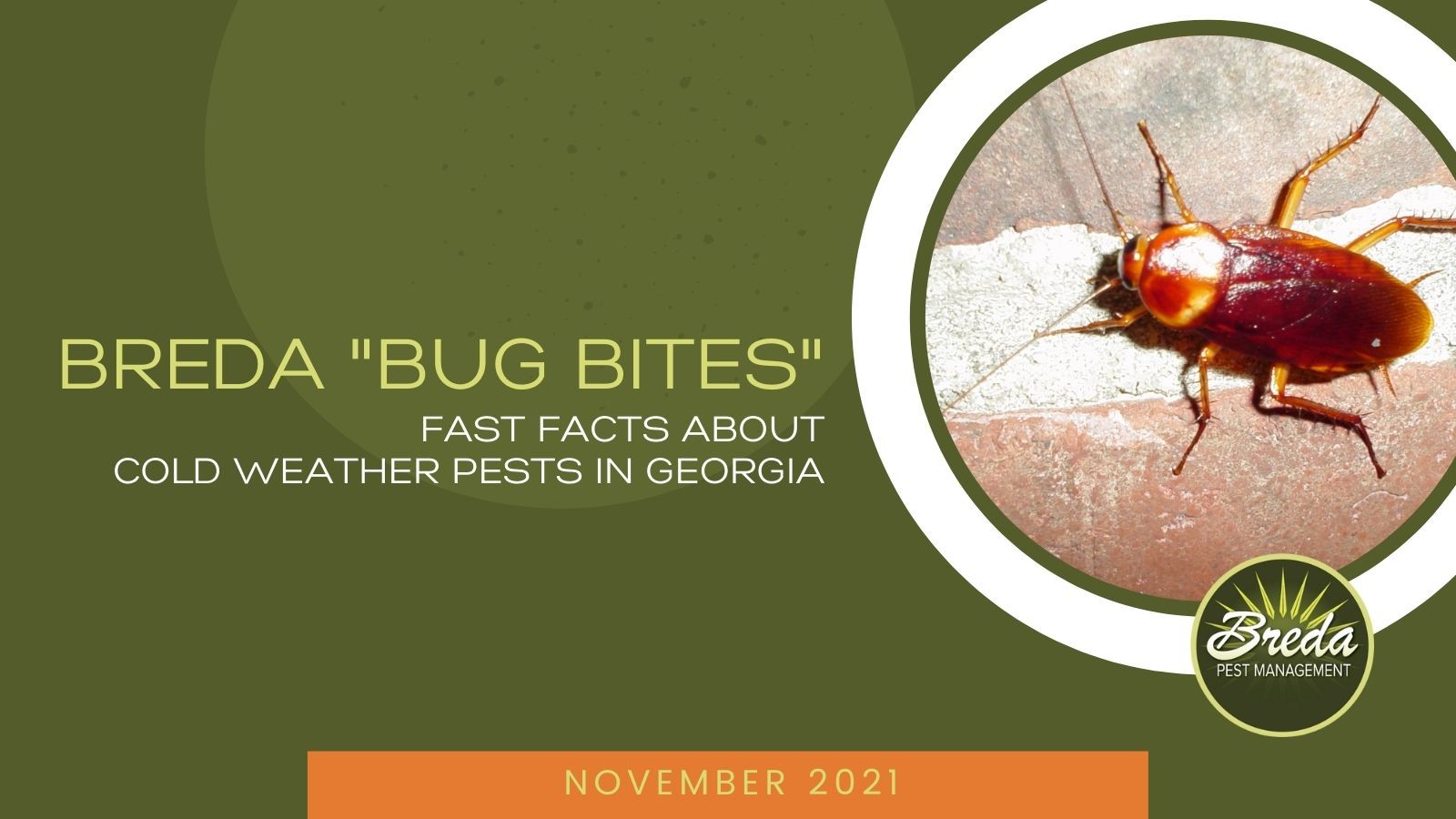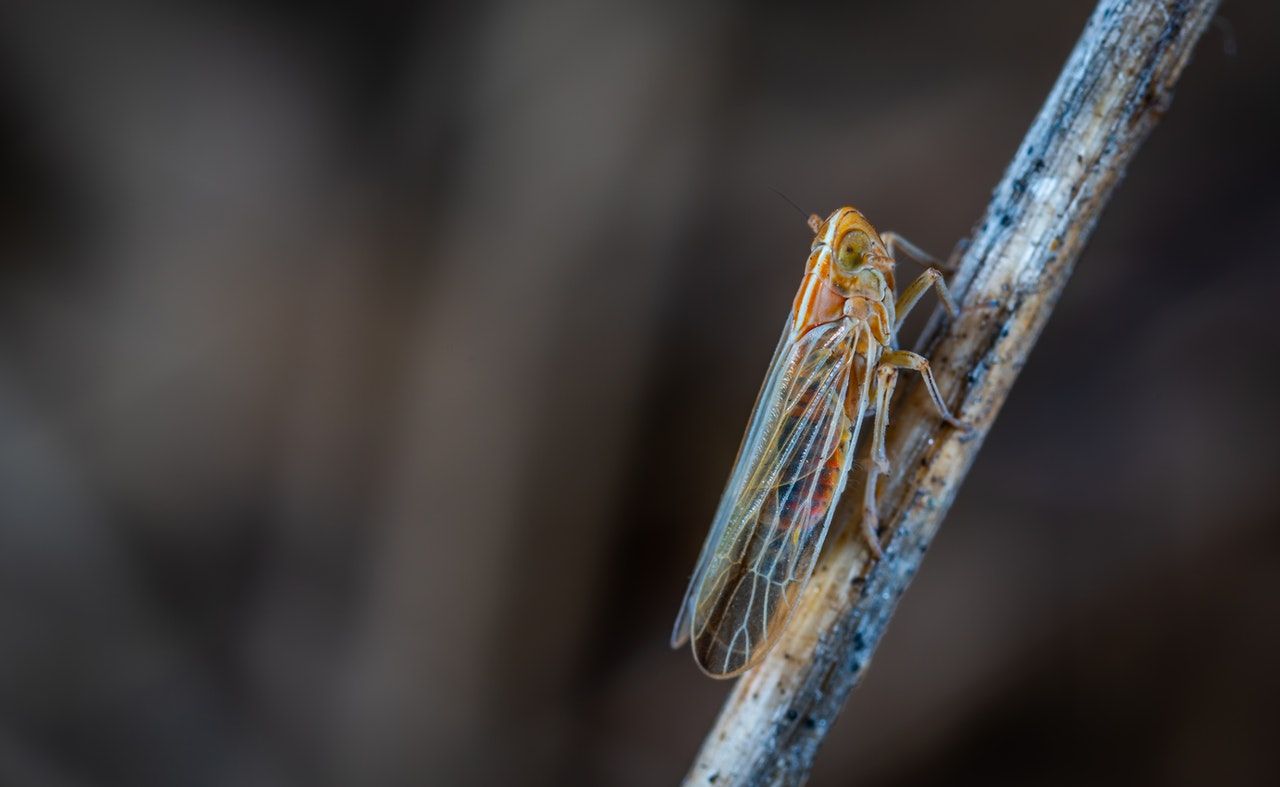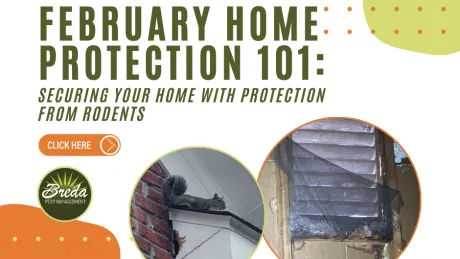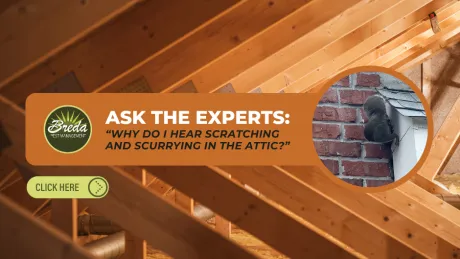
Which cold-weather bugs and critters are still active in Georgia?
Ah, fall is here and winter is right around the corner. That means a break from bugs, right? Wrong! Learn about bugs and critters that are still very much active in the cooler months and how you can defend your home and yard against them. (As always, if things get too hairy, the BREDA Pest Management team is always just a phone call away, ready to help.)
Did you know that some bugs go into diapause when temperatures get cold?

Wish you could hibernate? Bugs can't relate. Some pests like cicadas, mosquitoes, and gnats will shut their bodies down in the winter. Then in the spring, they hit the "on button" and spring back to life. (See what we did there?) If you do spot bugs inside your home on a warm winter day, those are the dumb ones. They've mistaken slightly warmer temperatures as their cue to come out of diapause and are now without a food source...and trapped in a house with you.
Did you know that fire ants are still below your feet in the winter, just deeper in the soil?
Is there anything Southern residents detest more than fire ant mounds popping up all over the lawn? The scary reality is that those hills you see are the proverbial tip of the iceberg. Underneath the surface, fire ants travel using extensive underground tunnels. As the temperatures on the surface grow colder, fire ants simply burrow deeper. They will still occasionally seek out sources of warmth, though, like electronics (they seem to be drawn to electrical currents), bath tubs, and hot water heaters. (To read more about keeping ants out of your Georgia home, click here to read our guide!)
Did you know termites are active 24/7, 365 days a year?
Think termites are warm-weather insects? Think again. Termites are cold-blooded, which means they can't control their body temperatures. To combat colder outdoor temperatures, termites (like ants) will just burrow deeper into the ground to wait out the fall and winter. A lack of surface activity might make you think that the termites have disappeared but don't be fooled. They are still moving, eating, reproducing, and destroying, just maybe at a slightly reduced rate of speed. This constant on-mode is likely why worker termites only have a lifespan of 1-2 years, while the king termite can live 2-7 years and the queen can live for a decade or more. Pays to be royalty, huh? If you're curious about the lifecycle of a termite colony, we have a free ebook you can access here.
Did you know smoky brown roaches are pretty strong fliers?
OK, we're in the pest control business and this fact still made us shiver a little. Roaches are gross enough on their own; why did they have to add flying to their repertoire of creepiness? Again, colder outdoor temperatures mean that many types of insects will be seeking out warmer shelter along with a readily accessible food source, so your home is prime real estate to pests like roaches. Don't want to have one of these suckers fly at you while you're trying to enjoy the season? Make your home as inhospitable as possible. Seal all entryways and windows that have gaps, cracks, or wear. Clear out your home's gutters (which are probably extra clogged right now with fallen leaves) so that you don't inadvertently put out the welcome mat to the food and shelter organic matter can provide. Be diligent this holiday season about properly storing food and cleaning up any crumbs or scraps from countertops and floors.
If you find yourself needing pest control and want it handled thoroughly, don't hesitate to give us a call. The BREDA Guarantee promises to fix your pest problem and keep it fixed—no matter the circumstances. Schedule a consultation online or give us a call at 770-466-6700.



